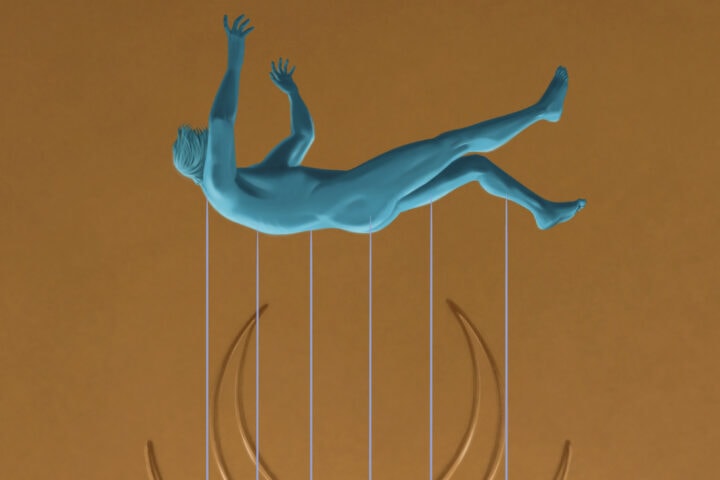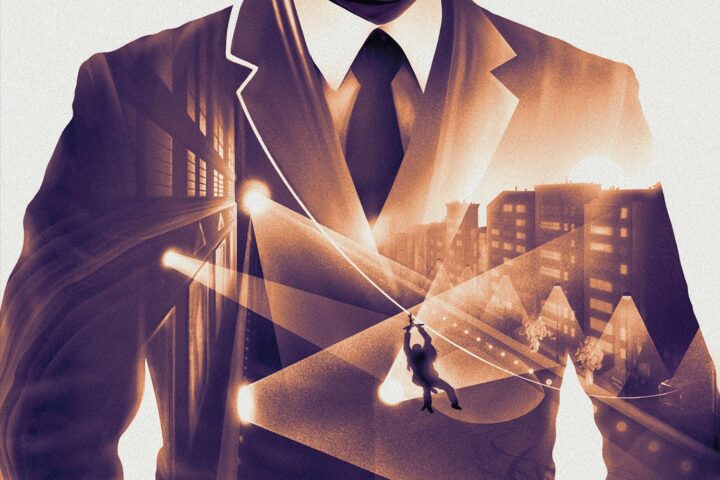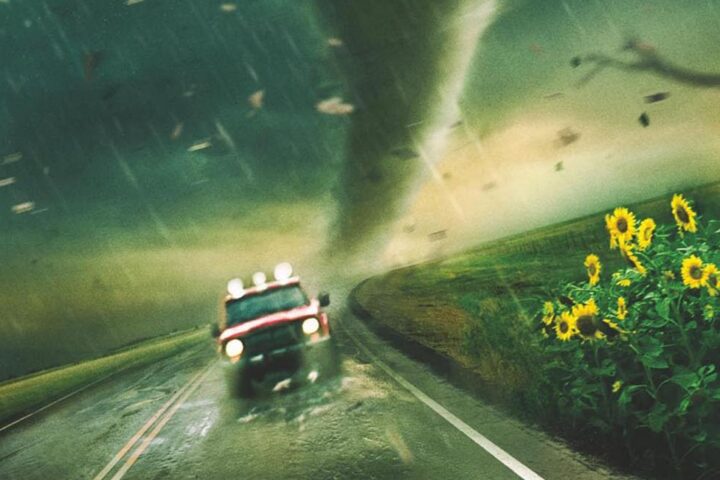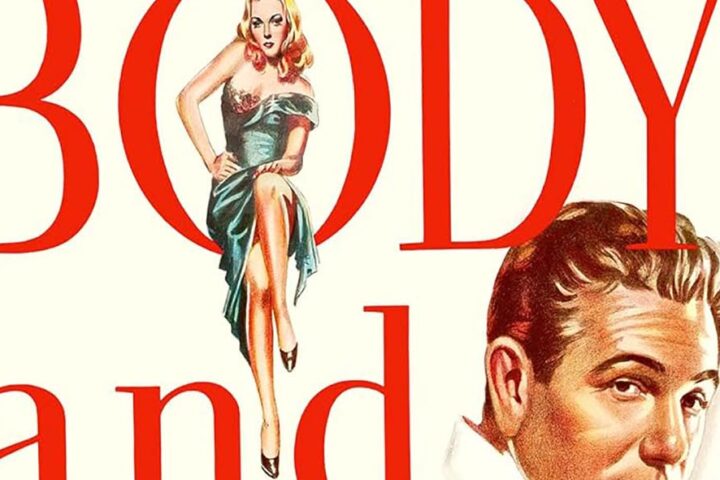In Todd Solondz’s films, outcasts yearn to be among those who are sexy and confident, who of course won’t have them, and they’re left to fester in a resentment that’s often ironically shared by the same cool kids that the outcasts idolize and resent. For Solondz, social caste systems blind us to the fact that we’re all united by misery, which seems to come close to qualifying as an optimistic point of view. He understands that dreams have been pounded into us by osmosis, and that the battle between our inherent selves, which are usually ugly and embarrassing, and society exhausts us into invisibility.
It’s a bleak thesis that was fashionable in American indie cinema of the 1990s, a scene that was riven with irony and distrust of institutions. Compare that to today, when many American indies are as platitudinous as networking events, and people argue passionately about Deadpool & Wolverine’s box office grosses. With this in mind, even the cheap and easy elements of Solondz’s sensibility go down easier now, for this Gen Xer at any rate, than they did in the 1990s. At least Solondz owns up to his darkness, honoring the least savory elements of his characters rather than trying to look good.
That’s not fashionable anymore in an era that’s losing sight of the fact that art can empathize with people that one doesn’t like or whose behaviors we even condone. With social media encouraging audiences to assume that all drama is a literal-minded reflection of the artists who created it, said artists are scared into sticking close to the shore of accepted truth and banality. Social media has encouraged us to serve as our own P.R. consultants, pushing the right messages for our humanist brands while rooting for the domination of our culture by corporations that parrot the right clichés while tightening their stranglehold.
Happiness’s network of subplots orbit a slippery theme that’s referenced by a title that’s both a bitter joke and an earnest lament. Solondz’s film is centered on three sisters and the lost souls in their periphery, suggesting Woody Allen’s Hannah and Her Sisters as fashioned by a disaffected John Waters. Trish (Cynthia Stevenson) is a smug housewife with three children who’s married to a psychiatrist, Bill (Dylan Baker). Helen (Lara Flynn Boyle) is a novelist who’s smugger than Trish, filling her joyless life with book promotions and sex sessions with boy toys. Meanwhile, Joy (Jane Adams) flits between thankless jobs and hopeless men.
Beneath this façade of the typical upper-middle class suburban family is enough sickness for several David Lynch films. Helen is sexually harassed on the phone by a neighbor, Allen (Philip Seymour Hoffman), who reports his fantasies of hate-fucking her to Bill, his shrink. Helen is attractive and stylish while Allen is a dweeb with big glasses and matted hair and bland clothes that mercilessly pinch his doughy body. Allen is a vivid creation, as he resides in Solondz’s wheelhouse and has the benefit of being played by one of the most ferociously empathetic actors in American cinema. The character is pitiful, but he’s titanically pitiful, and often funny.
In one of the film’s most uproarious scenes, Allen calls and harasses Joy, who initially mistakes him for a forthcoming date. It’s funny because of all the women in this film to get this call, of course it’s woebegone Joy who gets it, as she has a need for solace that the world keeps denying her (Helen, on the other hand, is turned on by Allen’s calls). Their exchange is a model of a good, organic sick joke. Hoffman and Adams allow us to feel Allen and Joy’s desperation and to laugh anyway. In fact, the characters’ desperation intensifies the bite of the joke, as this call is redolent of the anxieties and petty humiliations that go along with blind dating. Solondz rhymes Allen’s ridiculous obscenities with the banality of getting-to-know-you chitchat, the former suggesting the nightmare that the latter seeks to suppress.
This sort of scene, and there are several of them in Happiness, justify Solondz’s wounded cynicism, revealing him to be a maestro, when he wants to be, of jokes that are mean and empathetic. When Solondz is sticking with characters that interest him, such as Allen and Joy and Bill, losers who presumably allow him to cauterize his own demons, he’s a master of dramatizing the self-hating malaise that grips people across many social spheres, especially “incel” types, separating people when it should be uniting them. (Solondz could probably make a profound, potentially unwatchable, film about a modern school shooter.)
When Solondz is with characters he doesn’t have much use for, such as Trish and Helen, his writing can be facile. Given what happens to Trish especially, Solondz’s lack of curiosity about her inner life and agony is distracting. She’s a chirpy wife who talks in sitcom clichés. Even Helen is treated better, as she’s occasionally blessed with her creator’s wit, and given lines that brutally lance the delusions of other characters. (One such line is among the sharpest satire to be heard in an American film: “Joy, you are good. You don’t have to do good.”)
The thinness of certain scenes and subplots might be intentional, a means of deliberately lulling and distracting the audience with sitcom bits of business before moving in for the kill. It’s established early on in Happiness that Bill is a pedophile. He gazes longingly at his son’s friends during baseball practice, and, eventually, drugs and rapes two of them off screen. Bill knows that he’s sick, and the depth of his sickness isn’t evaded by Solondz and Baker, though they also regard him with sympathy as a cursed man. The agony wrought by Bill’s crimes is taken very seriously, and this scenario knocks the seriocomic, poignant, glib, hilarious and sometimes tasteless and often quite poignant Happiness off its axis.
Bill is almost certainly the reason that Solondz wanted to make this film. He knows that he’s playing with fire and he’s intoxicated by the danger of pushing the boundaries of empathy, daring himself to go where virtually no other filmmaker has gone. Remarkably, the Bill storyline doesn’t feel like a stunt—or, okay, it doesn’t feel as if it’s only a stunt. Bill’s secret is a Chekov’s gun that sullies us by association. How can we think about Joy and her love life, or Helen and her stupid boredom with her stupid books, when we know what Bill is doing or thinking somewhere else in the world of Happiness? Via the same ways that we divorce atrocities from our trivial concerns every day, through compartmentalization and rigorous denial.
In one of the film’s most daring scenes, Solondz builds a virtual set piece out of Bill’s efforts to drug his son’s friend. Bill puts something in the ice cream for his family, knocking them out, but the boy doesn’t want ice cream. Does he want a grape soda? A hot dog? Solondz draws this negotiation out to maddening ends, toying with us. The scene comes to faintly suggest the sickest of absurdist jokes—a “baby, it’s cold outside” routine set in Hell. The panic on Bill’s face as he realizes that he might not to be able to drug this boy is revolting yet unshakably human.
And Solondz pushes further. Bill’s son, Billy (Rufus Read), is going through sexual uncertainties of his own, and his conversations with Bill about his attempts to masturbate are threaded through Happiness as a leitmotif. Bill’s advice is compassionate and inescapably informed by the precarious line he walks between fatherhood and pedophilia. At times, Solondz nearly loses control of these scenes. The smirking outlaw in him is intrigued by the idea of staging Leave It to Beaver-style father-and-son chats in which the dad is a pervert, but Baker and Read, who is also astonishing, keep the material grounded in emotional reality. This movie is an ongoing cage match between Solondz the shock jock—the aggrieved nerd who enjoys fucking with us—and the artist who wants to look with sober eyes at the ugliest of human damage.
The final conversation between this father and son, in which Bill reveals to Billy the scale of his monstrousness, is the greatest scene of Solondz’s career. In direct dialogue, Solondz turns Bill’s confession into a nightmare variant of every time a child has had to confront the fact that their father is fallible. Bill’s truthfulness to the boy, which will scar him unfathomably, is framed as an act of love. Bill loves the boy too much to lie to him any longer, or he can no longer carry the weight of himself. Or perhaps he simply saw no point in lying again.
The ambiguity of that conversation weighs on us. And still Solondz goes further, refusing to shirk away from the film’s heart of darkness, the moment that Happiness has been working its way toward from the start: when Bill admits that he struggles even with an attraction to Billy. Solondz frames this scene as the ultimate confrontation of someone with their malignancy. The fear uniting all the characters here is that they will have to confront the scale of their awfulness and find the results even worse than they suspect. In his final scene, Bill realizes this fear.
Solondz isn’t saying that everyone’s a pedophile, even symbolically, but he’s suggesting that many people, dogged by varying demons of varying sizes, can relate in some manner to the loathing and alienation that’s eating Bill alive. That’s the gauntlet that Happiness throws down to its audience. In his reckoning with Billy, Bill allows the boy to truly see him no matter what the cost, perhaps if for nothing else than to finally be seen.
Image/Sound
Created from the 35mm original camera negative, this 4K restoration of Happiness looks positively lush, which isn’t something that I necessarily remember from 1998 theatrical exhibitions and particularly from viewings on DVD. Colors are rich and warm, and the textures of the images pop, which is evident in the many memorable close-ups of actors’ faces. The Dolby 2.0 soundtrack is immersive and pristine, emphasizing the film’s underacknowledged delicacy, notably in the painful lilting clarity of the dialogue and the musical interludes.
Extras
In a new featurette produced for this Criterion release, Aftersun filmmaker Charlotte Wells interviews Todd Solondz about the production and legacy of Happiness. Their conversation is more organic, less cut and dried than that may sound, as Wells was a student of Solondz’s at New York University who worked on Wiener-Dog. Knowing and appearing to respect one another, they settle into the comfortably prickly tempo of two colleagues who’ve each braved indie film waters. Most notably, Solondz seems to approach his films more earnestly than one might expect given their caustic nature. Of course, eventually Wells and especially Solondz allow that there’s no way in hell that Happiness could be produced and released now.
In another new interview produced for this disc, actor Dylan Baker discusses the challenges and, yes, the exhilarations of playing a character as dark and dangerous as Bill. The package is rounded out by the film’s trailer and a booklet featuring a short, sharp, and personal essay by the novelist and screenwriter Bruce Wagner.
Overall
This caustic, moving, funny, tiresome, and brilliant Molotov cocktail of a movie is outfitted by the Criterion Collection with a beautiful restoration and a handful of lovely supplements.
Since 2001, we've brought you uncompromising, candid takes on the world of film, music, television, video games, theater, and more. Independently owned and operated publications like Slant have been hit hard in recent years, but we’re committed to keeping our content free and accessible—meaning no paywalls or fees.
If you like what we do, please consider subscribing to our Patreon or making a donation.




